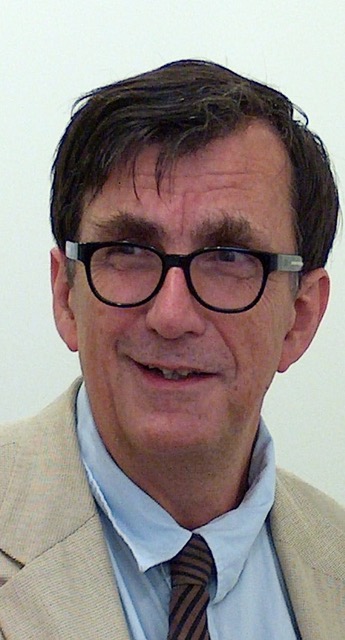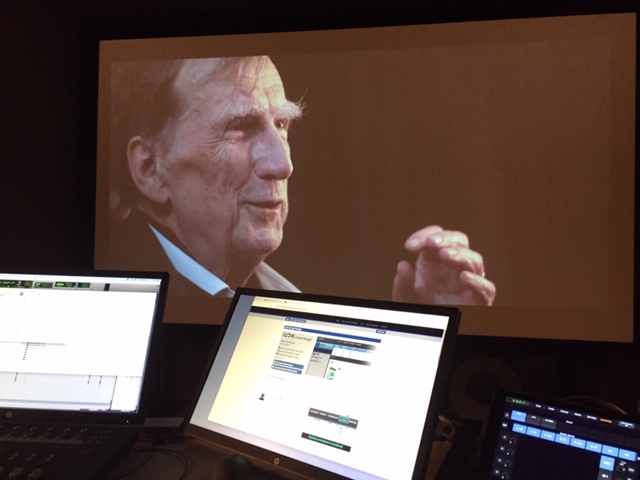
It is with great sadness that the Center for the Sociology of Innovation has learned of the death of Bruno Latour, who was for 25 years one of the pillars of our research center. He developed his research and teaching activities at the École des Mines from 1982 to 2006, carrying out a large part of the work for which he is best known. With Michel Callon and John Law in England, and later Madeleine Akrich and many other researchers, he led a radical renewal of the sociology of science and technology, through what was first called the sociology of translation, and then Actor-Network Theory – a theory soon to become internationally renowned. From his early days onwards, Latour had used what Callon and Law would call the principle of symmetry, which was as revolutionary in the eyes of anthropologists as it was in the eyes of epistemologists, in order to analyze the production of knowledge in Côte d’Ivoire with the tools of science, and the work of researchers in a Californian laboratory with the tools of anthropology. His stance: the universal is a particular like any other, it is the result of the meticulous production of inscriptions, not the discovery of a Nature that is already there.
His research in history, sociology and philosophy initially focused on scientific activity (Laboratory Life: The Social Construction of Scientific Facts [1979, with Steve Woolgar]; Science in Action, How to Follow Scientists and Engineers through Society [1987]; The Pasteurization of France [1988]) and technical innovation (Aramis or the Love of Technology [1996]). They found a favorable resonance within an engineering school, whilst science and technology were relatively ignored by the French social sciences. Already, however, the political philosophy reflection is present in these early works, and became an increasingly explicit focus of the approach he developed from the 1990s onwards (We have never been modern [1993]; The Making of Law: An Ethnography of the Conseil d’Etat [2009]). It problematizes our relationship to nature (Politics of Nature. How to Bring the Sciences Into Democracy [2004]; Pandora’s Hope [1999]), a theme that would drive him until the end of his career.
From Péguy, to whom his doctoral thesis was dedicated, from religion to literature and painting (especially on the relationship between the earthly and the divine), from law to politics, from economics to organization, it was the variety of these realities, at once distinct and closely related, that was of interest to him. From one field to another, he has worked to meticulously describe the unique ways each is articulated and shaped, culminating in his extensive Inquiry Into Modes of Existence [2012].

With a growing sense of urgency, he devoted his energy to blowing the whistle and politicizing the Anthropocene in a way that only a few have done, anchoring ecological problems to the ground and identifying very clearly the opponents of those he called “Earthlings” (Facing Gaia: Eight Lectures on the New Climate Regime [2017]). In doing so, he has transformed the notion of network into an instrument to describe and question the conditions of life on Earth, without ever abandoning his commitment to inquiry, inviting us to collectively ask “What are we holding onto, where can we land, where are we?” (Down to Earth: Politics in the New Climatic Regime [2018]; After Lockdown: A Metamorphosis [2021]).
So many questions that, thanks to his latest body of work, seem a little less dizzying
An outstanding educator, he devised collective experiments such as a teaching module on the study of controversies, which is still practiced today at the École des Mines, and which has spread to other educational institutions in France (École des Télécommunications, École des Ponts et Chaussées, Sciences Po Paris, etc.) and abroad (University of Manchester, MIT, École Polytechnique Fédérale de Lausanne, etc.). Dynamic and creative in facilitating scientific and policy debates, he paid close attention to the experience of those who engage in inquiry and strive to report on it. The research training workshops he led at CSI, putting doctoral students at the center of the discussion and drawing on inventive writing exercises, are exemplary of the spirit in which he approached intellectual debates.
The researchers of the CSI, Mines Paris – PSL, express their gratitude to him.

